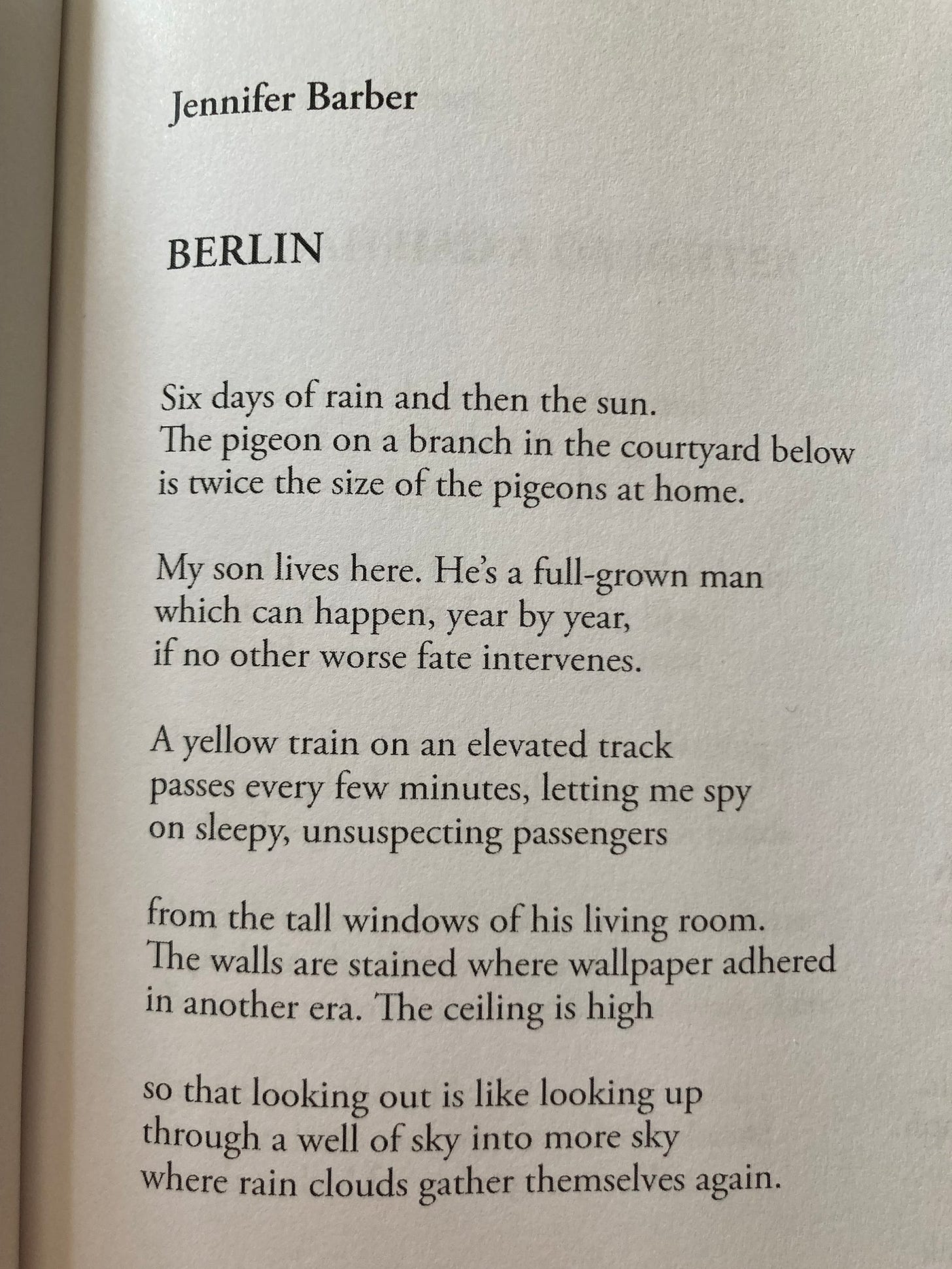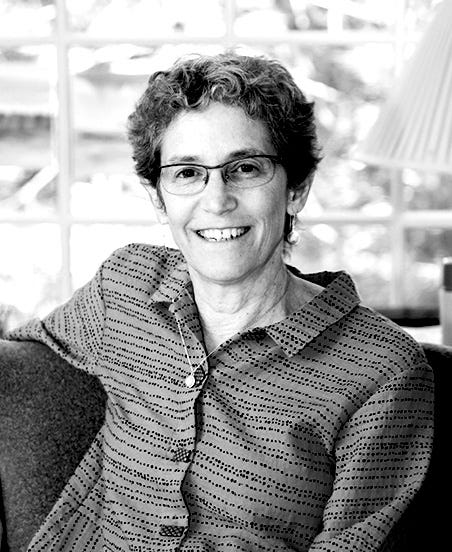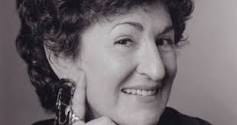Two Poems, Two Films, & Seneca's Advice
On returning to poetry and film and language--without the guilt.
A student surprised me this week with a quote from Seneca, which he had saved in his phone.
“Everywhere means nowhere,” Seneca writes. “When a person spends all his time in foreign travel, he ends by having many acquaintances, but no friends. And the same thing must hold true of men who seek intimate acquaintance with no single author but visit them all in a hasty and hurried manner.”
I felt Seneca was speaking directly to me. I once worked as a travel columnist, and lately I am always reading something new, while trying to make time to return to something very old. But I also want to respond to Seneca and say that there is a place for both “acquaintances” and “friends” in a reading life, as well as a writing life.
I happen to love to re-read, and I also often want to write about the same writer again, just as many of us want to talk with our friends again and again. Longtime readers and friends know, for example, that I am a big fan of Jennifer Barber’s poems, which often seem to me—to paraphrase a line in her breathtaking poem “In Ezekiel”— to be versions of God explaining the world in a whisper.
Berlin’s Brandenburg Gate, photographed by Luis Vidilla.
That’s true even for poems about loud places with a lot going on, like the city of Berlin, or perhaps, loud moments in time, like ours. When I saw her new poem “Berlin”—maybe a new poem is a new “acquaintance”—I asked Jenny for permission to share it.
Like so many of her poems, “Berlin” involves quietly observing the world. But the quiet is deceptive—there are always many layers to Barber’s work.
I love “sky into more sky,” and I can’t resist sharing one of my favorite Barber poems, “In Ezekiel,” which originally appeared in the Harvard Divinity Bulletin. I especially love the first and last stanzas, and of course, the thought of God whispering explanations.
In Ezekiel
When Ezekiel
is transported to
the Valley of Remains,
God explains in a whisper
that the bones will stand
moments before the flesh
and sinew cover them,
the breath returned.
What word would you use
for the sound of the bones?
The stroke of flint on slate?
A thousand keys
in a thousand locks?
A trembling stack of plates?
If you found a word,
do you also have a word
for learning the news
that someone you love
won’t be here long?
Jennifer Barber. Photo by Joanna Eldredge Morrissey, 2017.
Barber is the author of four poetry collections, most recently The Sliding Boat Our Bodies Made. You can read about them here—Jennifer Barber's book publications . As always, I encourage reading full-length collections. And if you would like read my previous newsletter on Jenny’s poems: On Jennifer Barber's Poetry
The Films of Nurith Aviv
I was in New York last week for a special retrospective of the films of Nurith Aviv, a filmmaker who focuses on language. Born in Tel Aviv in 1945, she now lives in France. I want to recommend her film Traduire, which features translators of the Hebrew language who work in all kinds of languages—French, Italian, Yiddish, Arabic, Catalan, and English. It made me think of Seneca’s comment on “intimate acquaintance”; each of these translators is intimately acquainted with Hebrew.
Nurith Aviv, early in her career.
It’s wonderful to see the late translator Chana Bloch, known for her co-translations of Yehuda Amichai, talking about her experience translating Dahlia Ravicovitch. The translation by the team of Chanas—Chana Bloch and Chana Kronfeld—is very good. I reviewed it years ago for The Jerusalem Post. My review of Dahlia Ravicovitch in English translation, for The Jerusalem Post
And well, it’s fantastic to learn, as Aviv told us at dinner, that the film is exactly 70 minutes long, to correspond with the targum shivim, the translation of the 70, or the Septuagint.
Aviv explained in our panel—co-sponsored by the Primo Levi Center and the Jewish Studies Program at Fordham University—that the film progresses as the Hebrew language does, from Biblical Hebrew to midrashic Hebrew to medieval Hebrew to the synergy between Yiddish and its modern literary movement and Hebrew, to the Hebrew-literature giant Shmuel Yosef Agnon and on to more contemporary Hebrew poets like Yehuda Amichai and Dahlia Ravicovitch.
I watched the film Traduire, or Translating (2011) by Nurith Aviv three times last week; you can find it with French subtitles or English substitles. I highly recommend it for anyone interested in the Hebrew language, or translation, or that question of how translators do what they do. You can view it here: Translating
In Israel, this was a week filled with portant days—Yom HaZikaron followed by Yom Ha’atzmaut. And this is of course, a challenging year, which included literal fires. And while the Hebrew language does not have its own day—though I always wish it did—this week may be a good time to view another one of Aviv’s films, which explores both the religious and secular nature of Hebrew.
Some of the writers Aviv interviewed in 2008 about the Hebrew language, like the great Aharon Appelfeld, are no longer alive. As Appelfeld described learning Yiddish, as part of the story of his relationship to Hebrew, I could feel all the fire of his brilliance, and I felt the urge to re-read his work.
Perhaps Seneca is right, and spending more time with writer “friends” is warranted. In any case, if you want a window into writers and history and language, and the fire of a holy tongue that became everyday speech, I recommend this extremely moving film. You can view it here, in Hebrew with French subtitles. Langue sacrée, langue parlée (Film, 2008, Nurith Aviv) . And to learn more about Nurith Aviv, and her life as an artist, you can watch this short trailer: About Nurith Aviv Shabbat shalom!
******************************************************************************************************
Hope you enjoyed this newsletter! Thank you for your support of writing with depth.









Hi Aviya, Hi Susan. Aviya, the friends/acquaintances dilemma, and the travel/stay at home dilemma, and the reading lots of books of poetry and returning to books of poetry, are all things I've been thinking about recently. I really appreciate your articulation of these matters in this piece, and your description of Nurith Aviv and the film Traduire. THANK YOU.
Another wonderful piece, Aviya -- thanks! I also read the piece you linked to about Jennifer Barber's work and really enjoyed that. She and I are "press sibs" actually -- from long ago -- we both had short collections in the old AGNI NEW POETS SERIES -- mine was in the 2nd volume and hers in the third, I believe. I like her work very much!